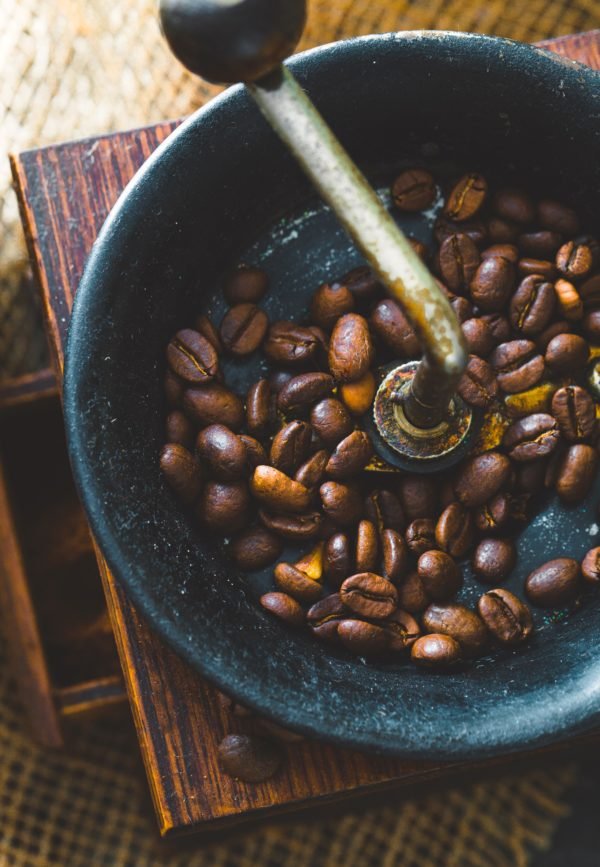
We all weigh our options when shopping for a product. Whether conscious or not, everyone makes purchase decisions based on an item’s price, quality, and availability. Often, choosing the best product based on your preferences, budget, and beliefs requires a bit of research. With a little extra effort, the choices you make in stores and restaurants can have positive impacts that extend beyond your own life.
The first step to shopping smarter is reconsidering the products you use every day, such as makeup, other beauty products like your go-to body lotion, shampoo & conditioner, washing up products, tech gadgets and of course… coffee.

In the U.S. alone, 64 percent of people drink coffee daily and Americans drink as much as they can get. One survey even found that 79 percent of respondents had brewed coffee at home the previous day. In other words, this delightful caffeinated beverage regularly appears on millions of Americans’ shopping lists each week. For consumers hoping to explore new exciting flavours or make more ethical purchases, reexamining your daily cup of joe is a perfect place to start.
The Coffee Industry
For many of us, our mornings aren’t complete without a cup or two to get us fueled. After waking up, we reach for a cup before doing anything else.
As the world’s second-most tradable commodity, the beverage has a ubiquitous consumer base. Coffee companies face considerable international competition to produce the best-tasting brew at an attractive price.
Unfortunately, this combination of demand and competition creates ample opportunity for exploitation and unsustainable farming practices. Large brands with complex supply chains are motivated to underpay farmers in developing countries to lower prices and increase profits. Often, farmers receive only ten percent of coffee profits. As a result, many coffee farmers struggle financially and can’t pay their workers fair wages.
With little cushion for hard times, coffee growers and surrounding communities are at the mercy of market fluctuations. What’s more, climate change makes natural threats like diseases and drought even more potent.
With so many challenges burdening coffee growers, environmental, social, and economic sustainability have become essential for the future of the industry.
What Makes Single Origin Coffee Different?
As the coffee industry faces many challenges, more consumers are recognizing the value of purchasing responsibly-sourced beans and grounds. Single origin coffee, unlike multi-origin blends, comes from one specific farm or country. Purchasing single origin coffee allows consumers to explore regional tastes while supporting small farmers and sustainable growing practices.
Why Choose Single Origin Coffee over Blends?

Unique Flavor Profiles – While multi-source coffee use beans from many regions to create a smooth and consistent flavour, single-origin brews have distinct regional tastes that coffee drinkers celebrate. For example, single-origin Ethiopian coffee is known for its berry-like notes. Columbian coffee offers a nutty and sweet caramel taste. These flavour variations come from the location’s terroir, which is a coffee grower’s term for the unique soil, topography, and climate of a region.
Higher Quality – Coffee from multiple origins tend to be mass-produced, making blends cheaper and lower-quality. Single origin coffee, on the other hand, is carefully handpicked in small batches, allowing farmers to focus on quality over quantity.
Direct trade also promotes higher quality products through intimate and equitable buyer-seller relationships. With fewer middlemen between the grower and the seller, the end consumer can enjoy a fresher, more flavourful cup of coffee.
Support Local Economies Where Coffee is Grown – Rather than supporting large companies that source products from dozens of places, single-source production eliminates intermediaries. This method encourages transparency and makes it more difficult for companies to underpay coffee growers. And, since specialty coffee sells at a higher price, purchasing single origin coffee provides greater profits for local economies.
Promote Sustainable Farming – Large-batch growing techniques often rely on damaging pesticides and fertilizers to meet production quotas. Massive coffee farms also contribute to deforestation of tropical rainforests to make room for coffee plants. In comparison, single origin coffee growers tend to use small-batch techniques that support higher biodiversity and healthy bee populations.
Identifying Single Origin Coffee Options
Finding single origin coffee at the grocery store can challenge the untrained eye; coffee packaging often lacks a clear “single origin” label. However, a little investigation should provide clues to the source of the beans. Carefully check the back and sides of the bag to find the country, region, and farm of origin.
Coffee lovers looking for their next caffeine kick on the go can also ask their barista about the origin of their brew. Many coffee shops use single origin coffees for pour-overs, and some specialty shops will rotate their selection based on what coffees are in season.
Another handy way to identify single origin coffee is to research certifications before hitting the grocery aisle. The Rainforest Alliance certifies small farms that meet biodiversity and sustainability standards, and Fair Trade USA pays a premium to farmers in developing countries that invest in worker safety, community development, and the ecosystem. Although these certifications do not guarantee that a bag of coffee is entirely single origin, they can help you find brands that support single origin practices.
Paying For Quality
It’s true that single origin coffee comes with a higher price tag, but for the coffee obsessed, the unique flavour and positive social impact of single-source coffee are worth the added expense.
Ultimately, transforming the coffee industry will require support from consumers around the world. Paying a little more for quality coffee can add a touch of gourmet and activism to the informed consumer’s life.
So next time you’re looking for that perfect morning or afternoon pick-me-up, consider trying a new single-origin brew. You never know what exciting flavour you’ll find, and somewhere in the world, a honeybee or a small-town farmer will reap the benefits.
